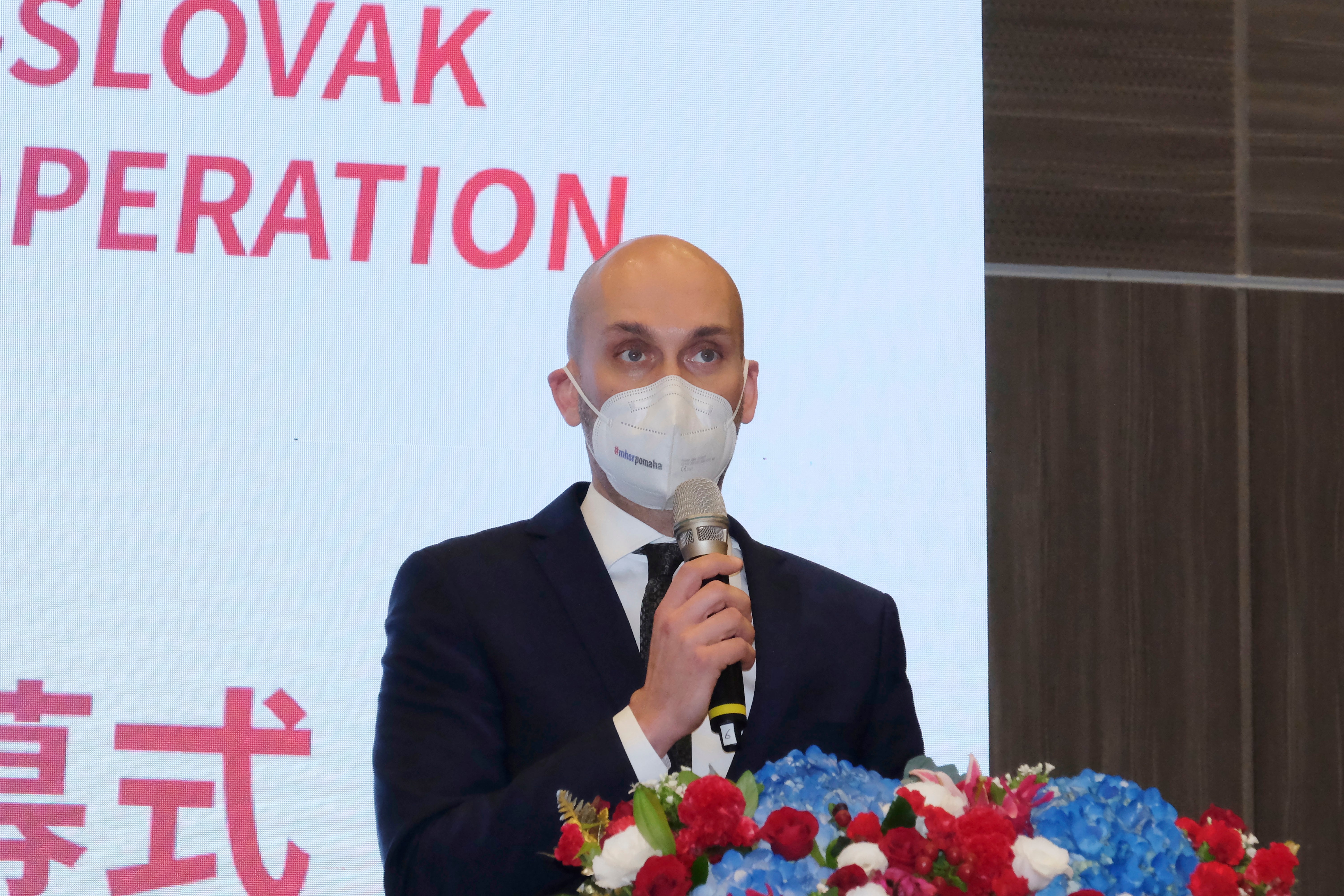Taiwan, Slovakia hold talks as island firms ties with Europe
Senior officials from the Slovak Republic are in Taiwan for talks on deepening ties with the island in the highest-level visit by the EU-member country since it opened a representative office in Taiwan in 2003

Your support helps us to tell the story
From reproductive rights to climate change to Big Tech, The Independent is on the ground when the story is developing. Whether it's investigating the financials of Elon Musk's pro-Trump PAC or producing our latest documentary, 'The A Word', which shines a light on the American women fighting for reproductive rights, we know how important it is to parse out the facts from the messaging.
At such a critical moment in US history, we need reporters on the ground. Your donation allows us to keep sending journalists to speak to both sides of the story.
The Independent is trusted by Americans across the entire political spectrum. And unlike many other quality news outlets, we choose not to lock Americans out of our reporting and analysis with paywalls. We believe quality journalism should be available to everyone, paid for by those who can afford it.
Your support makes all the difference.Senior officials from the Slovak Republic are in Taiwan for talks on deepening ties with the island in the highest-level visit by the EU-member country since it opened a representative office in Taiwan in 2003.
The visit by the delegation, which began Sunday, follows a mission last month by members of the European Parliament to the self-ruled island, which is also claimed by China
It comes amid growing support for the island democracy, which China says is part of its territory and could be annexed by force if necessary.
“The fact that we are here today despite the pandemic is because we are determined and committed to working with Taiwan,” said Lucia Kišš, director general for Economic and Development Cooperation at Slovakia’s Ministry of Foreign Affairs.
According to Taiwan’s Central News Agency, she called Taiwan “one of the most important investors” for the country.
Taiwan has formal diplomatic ties with 15 nations. Countries that maintain those relations face the ire of China's leaders, who insist that all countries adhere to a “one-China" policy formally recognizing only Beijing.
Lithuania another EU member, accepted Taiwan’s request in July to open a representative office in its capital city. It has also donated hundreds of thousands of vaccines to the island this year, provoking China’s displeasure. In August, China withdrew its ambassador to Lithuania in protest and expelled Lithuania’s ambassador from Beijing.
European Commission spokeswoman Miriam Garcia Ferrer stressed the representation office didn't amount to an embassy or consulate and should not be an issue when it comes to the one-China policy.
Garcia Ferrer said that Lithuania had informed the EU that China was making customs clearance for their firms difficult. She said that the EU would see if it amounted to a concerted effort, in which case it would investigate if it is compatible with the rules of the World Trade Organization.
The head of Taiwan’s National Development Council, Kung Ming-hsin, who visited Slovakia in October, said Taiwan had investments worth more than $564 million (500 million euros) in the country, creating 3,000 jobs there.
Kung's visit yielded seven agreements on strengthening cooperation on trade and technology.
Two-way trade between Taiwan and Slovakia totaled $250 million in the first nine months of 2021, according to Taiwanese government data, up 18.4% from the same period a year earlier.
Kung also noted that Slovakia donated 160,000 doses of COVID-19 vaccines in September, in an expression of friendship. Taiwan had donated hundreds of thousands of face masks to Slovakia during the beginning of the pandemic.
“I believe such mutual benefits, exchanges and cooperation coincides with what President Tsai Ing-wen calls a virtuous cycle,” he said. “We will expand this cycle to other fields including economic and trade cooperation.”
The Slovakian delegation is headed by its deputy economy minister, Karol Galek and other officials and business representatives.